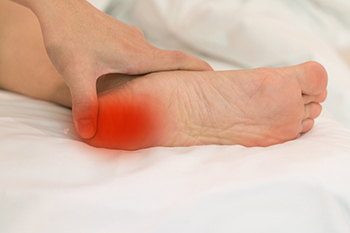Flint Office
1303 S. Linden Rd., Suite D
Flint, MI 48532

Parental guidance is vital for families with children experiencing Sever's Disease, a common condition affecting the heels of children during growth spurts. First and foremost, it is essential to educate yourself and your child about what Sever's Disease is, and what causes it. By providing age-appropriate information, you can reduce any anxiety your child may have about the condition. One important aspect of managing Sever's Disease is ensuring that your child wears comfortable, supportive shoes with proper arch support. Avoiding flat or poorly cushioned footwear may help to alleviate discomfort. Encourage your child to take breaks and rest, especially during strenuous activities involving running or jumping. Performing gentle calf and Achilles tendon stretches can also promote flexibility and reduce tightness. Support your child with the knowledge that symptoms are likely temporary and resolve when the heel’s growth plate matures. If your child is experiencing heel pain, it is suggested that you make an appointment with a podiatrist who can provide a proper diagnosis and treatment plan.
Sever's disease often occurs in children and teens. If your child is experiencing foot or ankle pain, see one of our podiatrists from Community Podiatry Group. Our doctors can treat your child’s foot and ankle needs.
Sever’s Disease
Sever’s disease is also known as calcaneal apophysitis, which is a medical condition that causes heel pain I none or both feet. The disease is known to affect children between the ages of 8 and 14.
Sever’s disease occurs when part of the child’s heel known as the growth plate (calcaneal epiphysis) is attached to the Achilles tendon. This area can suffer injury when the muscles and tendons of the growing foot do not keep pace with bone growth. Therefore, the constant pain which one experiences at the back of the heel will make the child unable to put any weight on the heel. The child is then forced to walk on their toes.
Symptoms
Acute pain – Pain associated with Sever’s disease is usually felt in the heel when the child engages in physical activity such as walking, jumping and or running.
Highly active – Children who are very active are among the most susceptible in experiencing Sever’s disease, because of the stress and tension placed on their feet.
If you have any questions, please feel free to contact our office located in Flint, MI . We offer the newest diagnostic and treatment technologies for all your foot and ankle injuries.